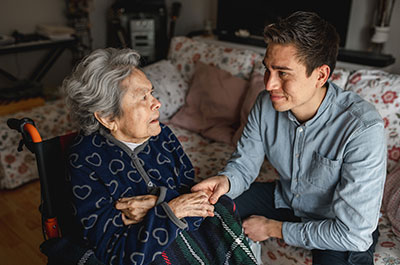Memory loss due to aging is a concern for many of us. You may wonder what’s a “normal” amount of forgetfulness to experience on a day-to-day basis and what is a warning sign of something more serious, like the onset of dementia.
“It is important to know that dementia, or a degree of memory loss that affects daily living, is not a normal or inevitable part of aging,” says Blake Arthurs, M.D., a family medicine specialist at Henry Ford Health. “The most common form of dementia, Alzheimer’s disease, affects about one-third of our population. Many people reach advanced age without significant cognitive problems.”
It is best to consult a medical professional if you have any concerns, because dementia-like symptoms can have a variety of causes, including medication side effects, dehydration, nutritional deficiencies, sleep problems, thyroid issues or depression.
The Differences Between Forgetfulness And Dementia
Reviewing these differentiators of typical forgetfulness and signs of dementia may help you decide if you should make an appointment with your doctor.

Memory Loss And Dementia Care
What are examples of typical or normal forgetfulness?
- Forgetting a specific word
- Occasionally losing things
- Forgetting where you put your keys
- Missing a bill payment
- Forgetting the day or date briefly
- Missing a medication dose
- Making occasional bad decisions
- Needing help with technology
- Wanting temporary break from work, family or social obligations
- Occasional moodiness or irritability
What are some possible signs of dementia?
- Struggling to communicate a thought or follow a conversation
- Frequently misplacing items and losing the ability to retrace steps
- Forgetting what keys are used for
- Trouble taking care of bills
- Confusion with time or place
- Inability to manage daily medications
- Frequent poor judgement that can be unsafe or costly
- Difficulty completing familiar daily tasks
- Withdrawal from work or social activities
- Frequent mood changes that include confusion, suspicion or fearfulness
Early detection is important with dementia, as are preventive measures like controlling diabetes and blood pressure, eating healthy, regularly exercising and engaging in activities that stimulate your mind.
“While there is still no way to cure dementia, there are medications that may slow its progression in the early stages,” says Dr. Arthurs. “A health care professional can also guide you to resources for family education and caregiver support, which can be very helpful.”
Reviewed by Dr. Blake Arthurs, a family medicine provider who sees patietns of all ages at Henry Ford Medical Center - Beck Road.



